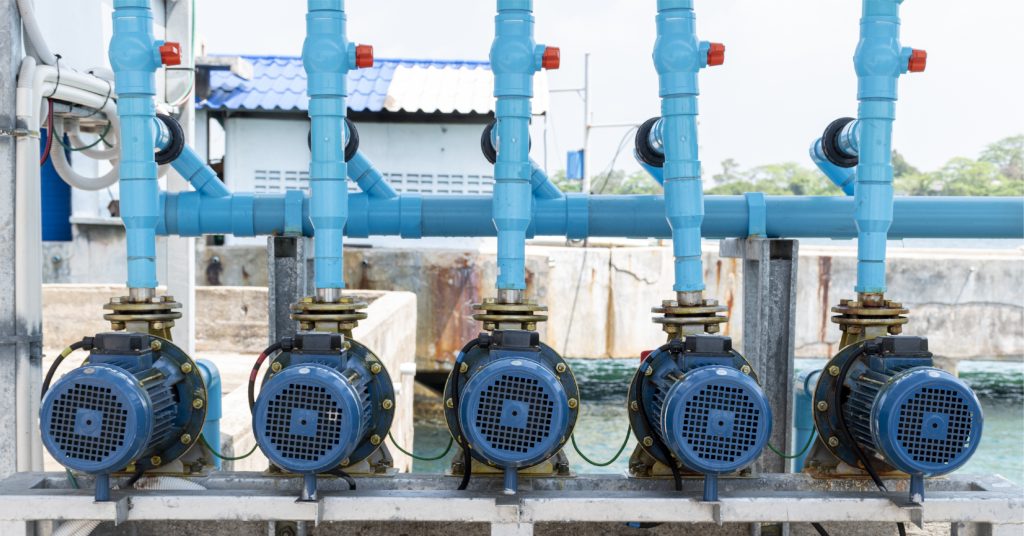In Saudi Arabia, where natural water resources are scarce and demand for high-quality water is rising, effective water purification is paramount. With the increasing need for industrial-grade water, deionized water has become a crucial component in various sectors, including pharmaceuticals, electronics, and manufacturing. This blog delves into the production of deionized water, its purity levels in Saudi Arabia, and the differences between deionized and distilled water, providing insights into its significance and applications.
What is Deionized Water?
Deionized water, often referred to as DI water, is water that has had its mineral ions removed. These ions include positively charged cations such as sodium, calcium, and magnesium, as well as negatively charged anions like chloride and sulfate. The primary characteristic of deionized water is its high purity, achieved through the ion exchange process, which makes it suitable for various industrial applications.
Unlike regular tap water, deionized water does not contain the dissolved salts and minerals that are common in most water supplies. This makes it essential for processes where the presence of these ions could interfere with results, such as in laboratory experiments or manufacturing processes.
Deionized Water Filters: Essential for High Purity Levels
Deionized water filters play a critical role in maintaining the high purity levels of deionized water. These filters are designed to remove any remaining impurities and ions that might be present after the ion exchange process.
In Saudi Arabia, where water scarcity is a significant challenge, achieving high purity levels in deionized water is crucial. The typical purity levels of deionized water in the region can reach very low levels of total dissolved solids (TDS), often below 1 part per million (ppm). There are many factors influencing purity, some of them are listed below:
- Source Water Quality: The initial quality of the source water can impact the effectiveness of the deionization process.
- Maintenance of the System: Regular maintenance and timely replacement of filters and ion exchange resins are essential to maintain high purity levels.
- Operational Conditions: The efficiency of the deionized water system can be influenced by factors such as water flow rate and pressure.
Difference Between Distilled and Deionized Water
While both distilled and deionized water are purified forms of water, they are produced through different methods and have distinct characteristics:
- Distilled Water: Produced by boiling water to create steam and then condensing the steam back into liquid. This process removes most impurities, including bacteria, salts, and minerals.
- Deionized Water: Produced through the ion exchange process, removing specific ions from the water. It may still contain organic contaminants and microorganisms that distilled water would not.
Ion Exchange’s Contribution to Delivering Superior Deionized Water Systems
INDION EDI
The INDION Electrodeionisation (EDI) System from Ion Exchange delivers consistent, high-purity water without the need for chemical regeneration, making it both cost-effective and hassle-free. This robust and reliable system integrates the proven technologies of electrodialysis and ion exchange resin deionization, offering a continuous process for producing ultrapure water using ion exchange membranes, resins, and electricity. With features like minimal maintenance and reduced operational costs, the INDION EDI System ensures a steady supply of ultrapure water, making it an ideal solution for various industrial applications.
INDION HEMO
INDION HEMO, a state-of-the-art solution from Ion Exchange, is designed to deliver ultrapure water essential for safe and effective artificial kidney dialysis. Adhering to the stringent standards set by AAMI, Indion HEMO undergoes a meticulous multi-stage treatment process, ensuring water is free from harmful mineral contaminants and bacterial endotoxins. This high-purity water mitigates the risk of adverse reactions such as nausea, vomiting, and muscle weakness in patients undergoing dialysis. Additionally, our comprehensive wastewater management solutions not only guarantee water purity for dialysis but also promote sustainability and cost-efficiency through secondary water usage. Indion HEMO’s offerings include customizable single-pass and double-pass sanitary RO designs, hot water sanitizable RO membranes, and advanced technologies like ultraviolet disinfection, electro-deionization, and ultrafiltration, all aimed at ensuring the highest quality and safety in dialysis water systems.
Conclusion
Deionized water plays a vital role in Saudi Arabia’s industrial landscape, offering high purity essential for various applications. The production process involves a sophisticated system of filtration and other advanced processes to ensure the removal of ions and impurities. Understanding the difference between deionized and distilled water helps in selecting the appropriate water treatment method for specific needs. As industries continue to rely on high-quality water, the role of deionized water systems remains indispensable.


